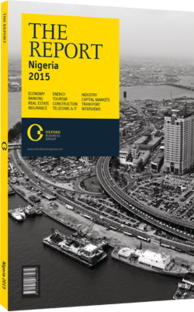Measures to address security issues in Nigeria's north
Nigeria’s rich ethnic and religious diversity, coupled with its resource wealth and poor governance, has at times contributed to localised incidences of violence, ranging from an insurgency in the oil-producing Delta region starting in the 1990s to tensions between villages in the country’s “middle belt”, where Muslim and Christian populations regularly mix. Rarely are identity issues the sole factor behind such problems, and just as frequently economic concerns, whether grazing rights or unemployment, play a large a role.
Aggresive Approach
Addressing such factors is tricky in any country – as similar insurgencies elsewhere in Latin America and Asia have demonstrated – although Nigeria has had some success in treating them in recent years. While militant groups do not often pose a major long-term threat to economic growth, they do nonetheless significantly impact development, which has prompted the government to take an aggressive approach to addressing them. This has become most evident in the rise in recent years of Boko Haram, a militant insurgency in the north of the country. The organisation’s abduction of nearly 300 school girls in April 2014, in the north-east state of Borno, made it front-page news around the world, but in past years it has regularly attacked villages across the north of the country and often engaged in firefights with the Nigerian military. The group – which is designated as a terrorist organisation by the US and has recently declared its affiliation with the Islamic State in Iraq and Syria – operates across the Sahel in Nigeria, Chad and Cameroon in an area roughly the size of Ireland.
The name Boko Haram comes from a local colloquial term meaning “Western education is forbidden”, a nod to the group’s founder, Mohammed Yusuf, who preached a conservative strain of Islam which condemned corruption in society and sought to create a Islamic state with sharia law. Its more formal name is the People Committed to the Propagation of the Prophet’s Teachings and Jihad, and it traces its roots back to the 1990s, although it generally became more prominent after 2002. The organisation increased its use of violence in 2009, following a crackdown by the authorities and the capture and execution of Yusuf. Attacks intensified in sophistication, scale and frequency under the leadership of Abubakar Shekau. He also changed its modus operandi by targeting civilians such as in the August 2011 bombing of the UN headquarters in Abuja and attacks on students at an agriculture college and bystanders at a bus station in Abuja.
Government Response
The government has rolled out a number of measures to try to tackle the issue, both directly and indirectly. The non-military component of the government’s response includes a financial stimulus plan for northern Nigeria, which was announced following the kidnapping of the schoolgirls in April 2014, and a handful of large Nigerian firms, such as Dangote Group, have made public plans to increase investment in the area. Encouragingly, a similar project for the country’s Niger Delta region helped to reduce violence and criminal activity. The government has also indicated it would reach out to faith-based organisations in the north to deter radicalisation.
Abuja has increased the military response, albeit with mixed results, with some units affected by under-maintained equipment and low morale, while the government has also sought to bring locals into the security apparatus, a programme which followed the May 2013 state of emergency imposed in the north-eastern states of Adamawa, Borno and Yobe. Nigeria has also increased its collaboration with neighbouring states to help pursue militants across border regions and limit the fallout in surrounding areas.
While Boko Haram has expanded its targets, the direct impact on foreign investors is likely to be fairly limited, given the concentrated geographical reach of the group, the increasing successes of regional military collaboration and higher development spending. If Nigeria can replicate the modest success it saw in taming the Delta insurgency, it would be an impressive result, although that will certainly take time to achieve.
You have reached the limit of premium articles you can view for free.
Choose from the options below to purchase print or digital editions of our Reports. You can also purchase a website subscription giving you unlimited access to all of our Reports online for 12 months.
If you have already purchased this Report or have a website subscription, please login to continue.

